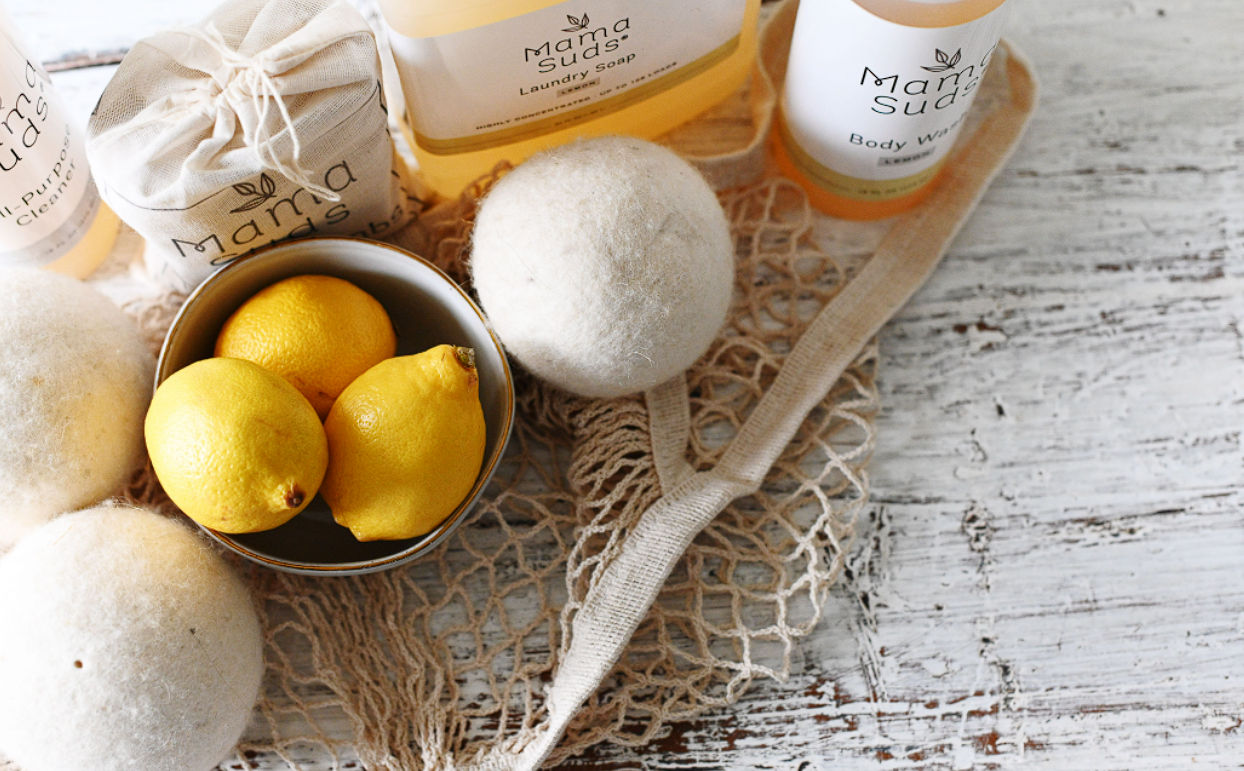
The CleanSuds Blog
Where education and truthful facts are easy to come by.
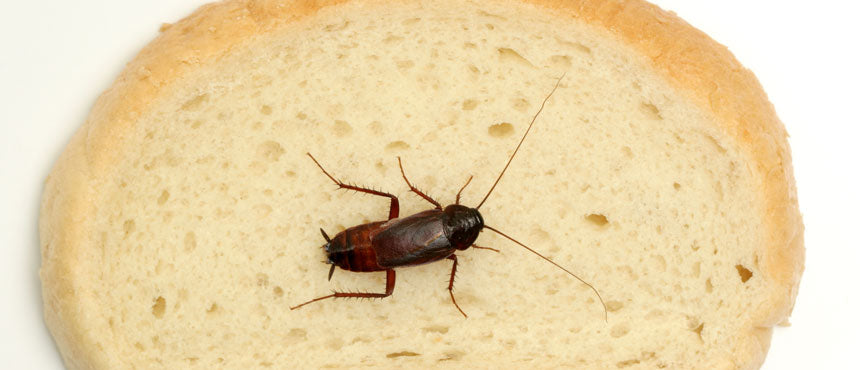
So You Have a Bug Problem: What Next?
• Block all entryways and fill in any cracks or broken screens to prevent pests from entering.
• Make sure there is no standing water anywhere, as it can be a breeding ground for bugs.
• Clean up any messes quickly, dispose of food properly and wipe down anything coming inside.
• Following these tips will help reduce the number of pests in your home.

Where Are Toxins Hiding in Your Home?
Believe it or not, there are toxic chemicals that are found throughout almost all homes in the world. But what are these toxic chemicals and where do they come from? The most common place that holds toxic chemicals is dust. Dr. Ami Zota, an assistant professor of environmental occupational health, and her team divided toxic chemicals found in homes into different classes, testing these chemicals to be present in popular products owned by homeowners.
What are toxins?
A toxin is defined as an antigenic poison that causes diseases when present at low concentrations in the body. The main two toxic chemicals found inside home samples are phthalates and flame retardants. Phthalates are present in plastic, allowing them to reside in carpets, linoleum, vinyl floors, blinds, food packaging, etc. Flame retardants are chemicals that help products meet flammability standards set out by insurance companies and building codes. These are most present in paints and sealants. Moreover, environmental phenols are preservatives in personal care products, and fluorinated chemicals are used as stain repellent treatments for carpets and clothes.
Harmful effects of toxins
Toxins in your home have adverse effects on your health. Children inhale them crawling around and are constantly touching things while putting their hands in their mouths. Phthalate exposure can increase the risk of respiratory, neurodevelopmental, and mental problems in both children and adults. These toxins can also disrupt the hormones inside of your body, causing reproductive problems.
How to remove toxins with remodeling
There are multiple ways to remodel your home in order to create a safer, toxin-free environment. Instead of using toxin-containing materials to renovate your home, try using more natural materials. For example, instead of using carpet on your floors, consider using teak hardwood floors. Another example would be to use stone walls instead of paint. And lastly, having a home that contains bamboo will assist in removing unwanted toxins from the air. If you’re concerned about the costs of remodeling your home with stone and teak instead of getting carpet and paint, there are some government programs to help Americans live greener such as energy efficiency mortgages and cash out loans.
Furthermore, regularly dusting your home is a major recommendation in preventing toxins from entering your home. Additionally, you should avoid using a feather duster and instead use powerful vacuums to collect all of the dust. Houseplants may also help absorb the chemical compounds in the air. And lastly, keeping your hands clean as well as the surfaces of furniture can do wonders for the condition of your home.
References:
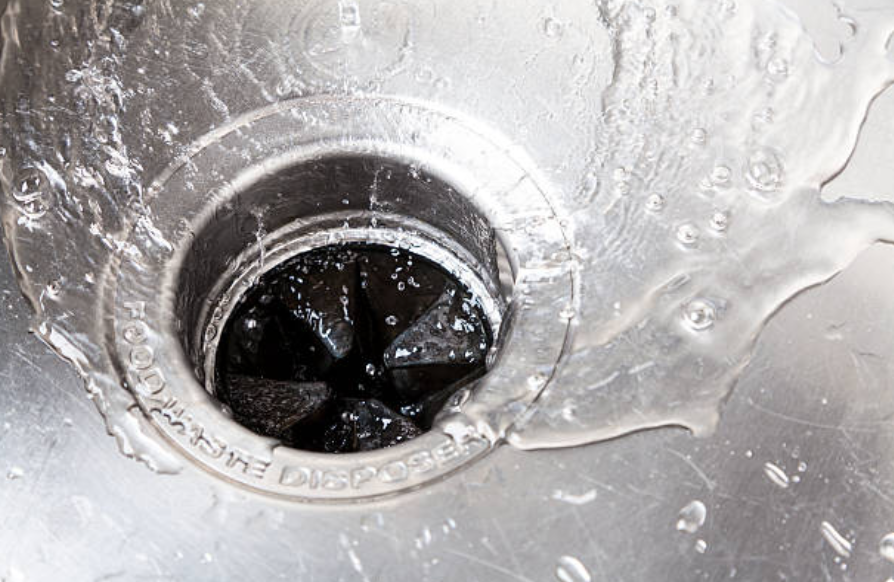
Keeping Your Waste Disposal Clean And Green
Keeping Your Waste Disposal Clean And Green
With 7 million new shipments each year, the waste disposal unit is an essential part of an American kitchen. From 20 somethings to suburban families, everyone relies on this nifty appliance to get rid of their waste easily and effectively. It can be a major pain when it suddenly refuses to work. Fortunately, you can easily prevent a waste disposal unit from running into these issues. To keep your unit running smoothly, all that you need are a few cleaning tips that are also easy to follow.
What not to put in the disposal
One of the simplest ways to maintain cleanliness of a waste disposal unit is to only “feed” it things that it could process easily. Ensure that you understand the ground rules about what to put in the unit and what to dispose outside of it. By adopting this simple practice, you can make sure that the unit functions issue free. Knowing what to put down the unit will not only keep it running well but will also maintain its long-term hygiene. Items such as coffee grounds and potatoes can stick to the disposal pipe, where they cause a gradual buildup of bacteria. This can also clog your kitchen sink through the disposal unit. Therefore, whatever you do, try not to put such items in the unit.
Use the disposal only when you absolutely need to
The popularity of waste disposal units has a major reason behind it. Since you can dispose of leftover food and save it from going to landfills, the idea catches the attention of those of us who want to be as eco-friendly as possible. But while you may be doing this with the thought of helping the environment, these units actually do more harm than good. Try using them only when going to the recycle bin is not an option. It will not just be friendly to the environment, but will also keep the unit in its best shape due to moderate usage.

Develop a cleaning routine to maintain your unit
Following stringent rules on what to process through the waste disposal unit and how frequently to use it will go a long way. However, you will still need to keep the unit cleaned to ensure that you are not working on a germ infested sink. To achieve the desired level of hygiene, you can use everyday staples from your pantry such as vinegar, baking soda, and salt to keep your waste disposal unit pristine.
Lastly, do not forget to keep regular checks scheduled with a plumber every few months. This practice will help you eliminate any problems before they become too big to handle. These few methods will not just keep unwanted smells at bay while also maintaining the hygiene of your waste disposal unit, but can help keep your drain running smoothly for a long time.
Contribution by freelance writer Sally Preston
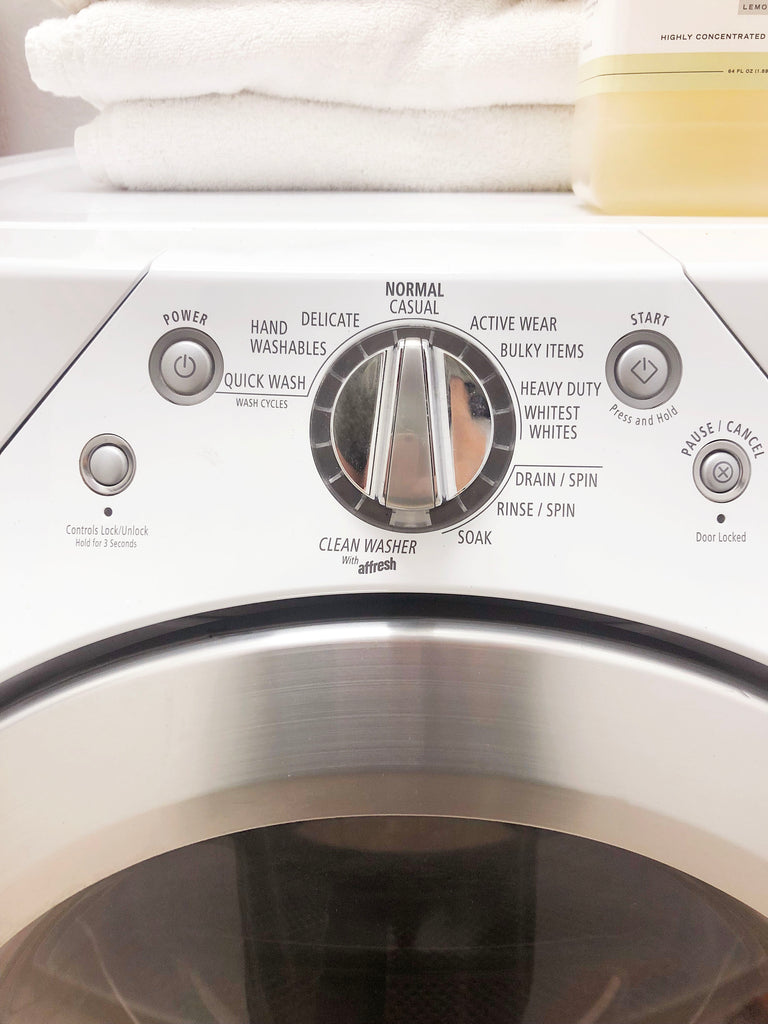
Can Soap ruin my Clothes or Washer?
Laundry is based on science. You need something that cleans. Sure, it's not black and white, our water systems are so different from region to region making laundry hit or miss for many people. What works for you may not work for my household. But there is still science behind it. Salts and minerals soften water and do crazy scientific and ionic things to help the soap or surfactants do their thing- which is getting the dirt out of your laundry.
If you're here on this site, you're probably trying to find a more earth-conscious company to wash with. If you've turned to Facebook groups you have probably heard many people claim that soap-based laundry products don't work and can ruin your machine and your clothes. They claim all soap-based laundry products leave behind a residue.
NOT TRUE.
Many soap makers create soaps (both liquid and bar) that have extra fat in them. This is called superfatting. In the end, it creates a product that has extra fat that has been left behind during saponification. The thought is that these extra fats make a soap that is more moisturizing and emollient (soothing and softening).
MamaSuds does not superfat their liquid soap. Why? Many people who have skin issues react to anything left behind from soap.
Creating a liquid soap that is zero superfat also means it won't leave any oils behind during cleaning. Which is great news for people who need a laundry soap that does not leave a residue behind! This is a link to a great explanation of superfatting soaps.
MamaSuds DOES work for all types of clothes (including cloth diapers). If you've read this article about how DIY laundry recipes ruin your washer (and yes they CAN if you aren't using the right soap!), you can use MamaSuds Castile Soap as you soap in your DIY recipe!
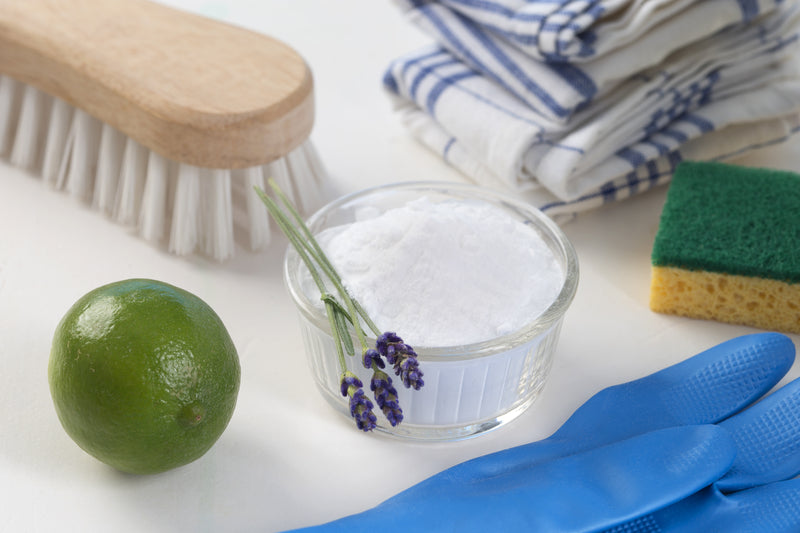
Why You Should Only Use Natural Cleaning Products
When given the option to use natural or commercial cleaning products, choose the one that is free of harsh chemicals and artificial fragrances. You'll experience a safer, cleaner home. It will be one thing that lessens your exposure to free radicals, not increases it. Here are some of the reasons why you should only use natural cleaning products:
Some chemicals cause serious diseases such as cancer
According to CNN, Project TENDR findings included neurodevelopmental disorders in people exposed to hidden chemicals inside the home. Other organizations found that the chemicals in commercial cleaners affected reproductive health.
Asthma and other breathing problems increase with some commercial cleaners
Although dust, pollen, and dander are often the root cause of respiratory problems for people and pets, some cleaners also cause breathing disorders such as asthma. Keeping harmful substances out of a home helps clear up the air so that everyone breathes better. Using a dehumidifier or even an air conditioner draws moisture from the air, which can make some respiratory issues worse.
It's economical to make your own simple cleaners at home
There are all kinds of books, websites, and videos dedicated to making everything from toilet bowl cleaner to coffee pot cleaner. Most require a few simple supplies from your pantry such as vinegar, hydrogen peroxide, salt, and baking soda. These items can be acquired cheaply at grocery stores and dollar stores. They can be used to make effective cleaners for the home for pennies on the dollar.
Green cleaners are better for the environment
Harsh chemicals are released into the atmosphere where they contribute to existing pollution. Bodies of water and the air that people breathe is filled with toxic substances that could be avoided through awareness and action. When you choose to use natural cleaning products, you're lowering your carbon footprint and risk for illness and disease.
Creating a safe, clean environment for you and your family to live and entertain in is imperative. By mindfully choosing the items you use for cleaning your home, you eliminate many of the unseen dangers that come with harsh commercial cleaning agents. You're able to clean and disinfect without harming the occupants in your home, your guests, pets, and even the planet.
Natural cleaning products are better for you, your household, and the environment. Whenever given the option to buy cleaning solutions that contain organic ingredients, choose them over commercial cleaners. You won't be exposing yourself to free radicals that way. Your home will be as clean and sanitary as it would be if you used chemical-laden multipurpose solutions, glass cleaners, and carpet cleaners.
MamaSuds offers a wide selection of natural cleaners that are truly safe for your family. Shop today!
References
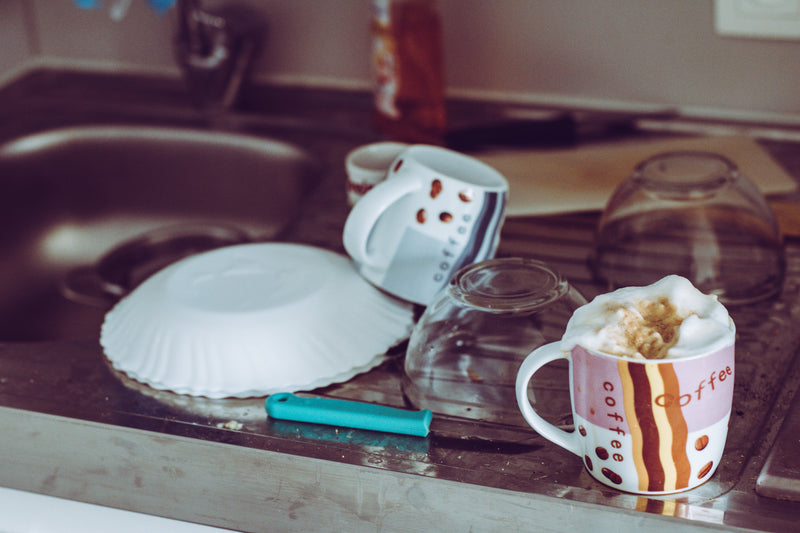
How Clutter Affects Your Mental Health
Clutter is unpleasant to look at and a pain to deal with - that much is obvious. But did you know that clutter could also be harming your mental health? It's true - a cluttered house, car, or office can sap your energy and your happiness. Here are a few reasons why clutter takes a toll on your well-being.
Clutter Stresses You Out
According to Recovery Resource Mental Health Services, approximately 1 in 5 adults in the United States battles with mental illness every year, and clutter could be part of the reason. Why? For one thing, it's hard to truly relax when you're surrounded by junk. Clutter is ugly, and it has a way of nagging at you, you know you'll have to take care of it eventually, but starting the task is too overwhelming for many people. The constant, gnawing stress of living in a cluttered environment can contribute to the development of mental health disorders down the line.
Your Clutter Might Be Harboring Harmful Substances
If you let clutter sit for too long, it might start to grow mold. Mold toxicity is a surprisingly common cause of mental health issues. Some of us can be vulnerable to mold, and thus express symptoms that are exclusively psychiatric. Mold is usually the result of water damage, and that can be covered by messes and clutter, so be sure to check around the nooks and crannies of your home.
Clutter Can Affect Your Relationships
It's hard to enjoy being home with your spouse or kids when you're surrounded by a jumble of mail, books, shoes, and other clutter. You're also less likely to invite friends over if your house is cluttered. This can strain your relationships, and your potential relationships as well, because there are some people who find messy homes a huge turn-off.
Clutter Makes It Harder To Live A Healthy Lifestyle
Are you inspired to cook healthy meals and workout when you're surrounded by junk? Probably not. Your environment affects your mindset, and a cluttered house tends to make most people feel lazier and more complacent than they would otherwise. If you value your health, clearing the clutter can help you make better health decisions on a daily basis. So when you're ready to start a new fitness routine, take the time to sell, donate, and recycle unwanted items in your home. You may be surprised by the difference it makes.
Clutter is a Sign That You're Stuck in Consumerist Patterns of Behavior
If your house is cluttered, it's a sure sign that you've got too much stuff. The chances are good that you've been accumulating that stuff for a long time. Use your clutter as a wake-up call - you're buying more than you need, and it's time to scale back your shopping habits.
The Takeaway
Clutter is toxic for your mental health - it stresses you out, gets in the way of your relationships, and even influences you to make worse lifestyle decisions. If you have a clutter problem at home, why not start tackling it today? Grab your favorite soaps and begin clearing away the clutter, one piece at a time. You might be surprised at how great you feel afterward.
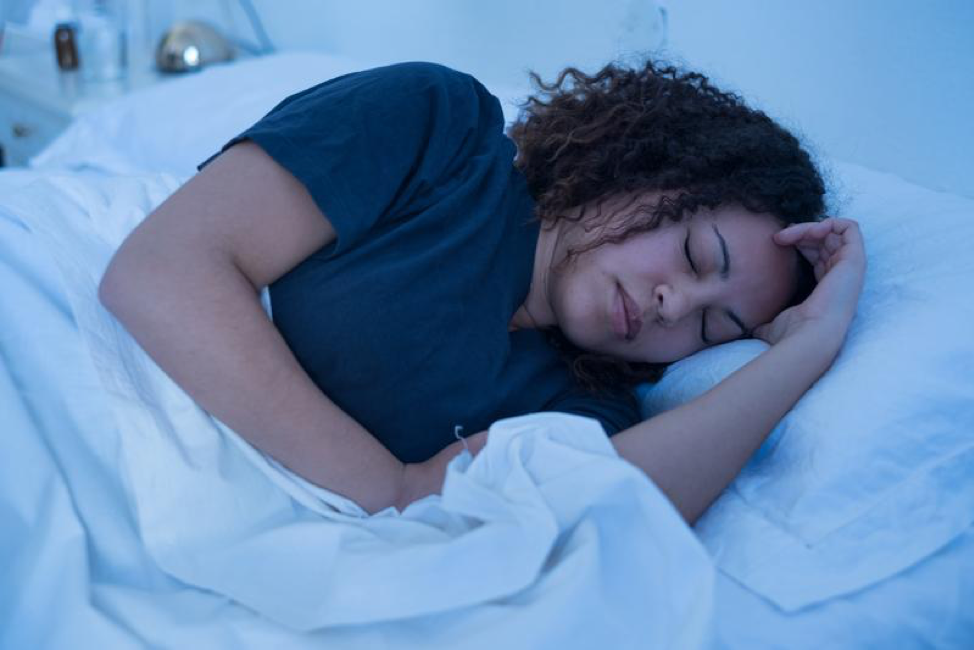
All-Natural Ways to Get a Better Night's Sleep
- They struggled with sleep issues like insomnia and found natural solutions worked better than prescription drugs or unhealthy habits.
- Diet plays a role, so they avoid carbs and sugar before bed and consume fruits, nuts, teas, or CBD products instead.
- Exposure to light and screens within an hour of bed disrupts the body's circadian rhythm. They power down devices early and limit light sources.
- Unwinding is important, so they make bedtime a relaxing process instead of crashing immediately after busy activities.
- Warm baths, scented candles, sleep music, and consistency help their body recognize when it's time for sleep.
- Physical comfort like pillows and mattresses also affect quality of rest. Natural supplements work best when standard remedies fail.
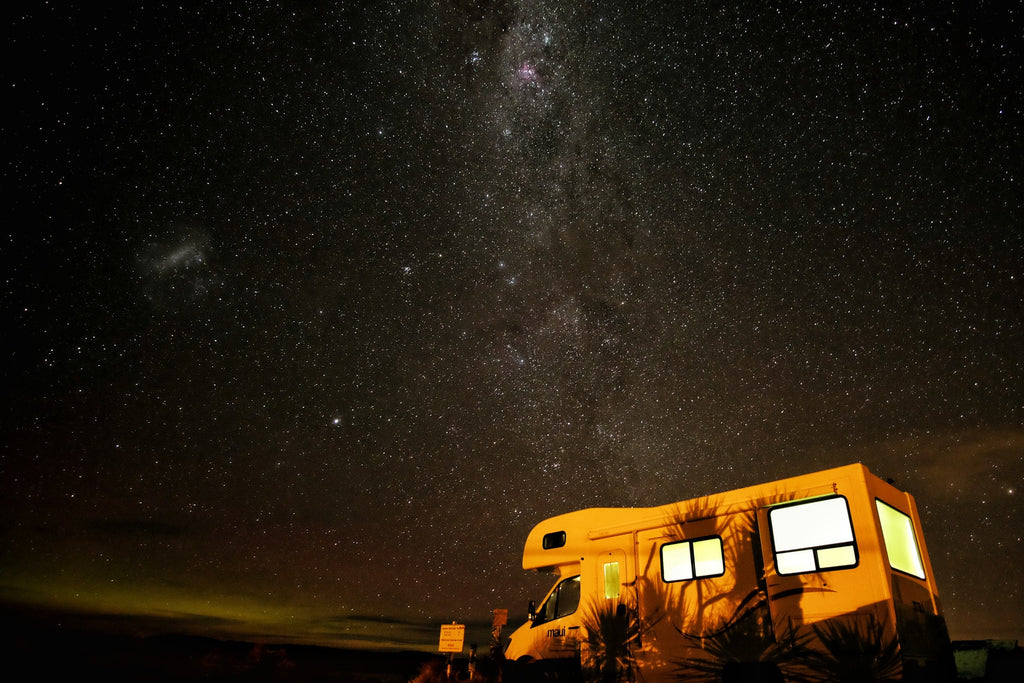
Keeping Your RV Green
With many older RVs managing a mere 8 miles per gallon, frequent driving in your motorhome could impact negatively on the environment¹. However, if you live in one full time, you are avoiding the greenhouse gases caused by living in a large house. Therefore, an RV can be part of an environmentally friendly lifestyle, as long as you know how to care for your vehicle in the greenest way possible. Follow the tips below to maintain your RV, allowing it to last a lifetime while causing minimal environmental damage.
Pack light
It can be tempting to bring everything with you on your camping trip, considering the ample storage space an RV offers, but you really only need the essentials². The lighter your load is, the less gas will be required to get you to your destination. It will also put less strain on the tires and mechanical components of the vehicle. This ultimately means more MPG and a longer lifespan.
Avoid chemicals
Chemicals in everyday household products are a major cause of indoor air pollution³. Since your RV is essentially a home, it will contain much of the same household cleaners and paint, which can be full of toxins. Take time to replace any chemical-containing products with a natural alternative.
You can make your own cheap, non-toxic cleaner using baking soda, vinegar, lemon juice and hydrogen peroxide⁴. This will work just as effectively at maintaining the counter tops, without polluting the air. Keep doors and windows open during the day for extra ventilation to allow pollutants to disperse.
Use a carwash
Handwashing is the preferred method of cleaning for many people. It is cheaper and also seems to be environmentally friendly. However, it can cause more damage than you’d think. As you wash oil and gasoline off the RV, it will travel straight into the drain and contaminate the water. Professional car washing services, conversely, are required by federal law to send water to sewage treatment centers where it can be cleaned before it comes into contact with nature⁵.
Get regular checkups
Just like you don’t wait until your tooth hurts to visit the dentist, don’t let your RV’s warning lights come on before you get it checked over by a mechanic. This will not only increase the lifespan of your RV, but also ensure that it causes minimal environmental damage when it is running. Regularly tuning your vehicle can improve fuel efficiency by up to 4%⁶. Keep everything in top working order to reduce the energy required to keep your vehicle moving.

There are many ways in which downsizing to an RV can be a green and sustainable way to live. The tips above are a good start, but there are plenty more steps you can take towards eco-living. Switching to a more economical biofuel is one idea, as is installing solar panels. It really depends on your available time and budget, but the tips above are simple techniques that everyone should take to ensure green RVing.
1) Linda Baker, The Green RV, November 2008, Accessed June 2018, https://www.nytimes.com/2008/11/07/travel/escapes/07RV.html
2) Mike Napier, RV Kitchen Essentials: What To Bring, What Not To Bring, March 2018, Accessed June 2018, https://kempoo.com/rv/kitchen-essentials/
3) US Environmental Protection Agency, Introduction to Indoor Air Quality, January 2018, Accessed June 2018, https://www.epa.gov/indoor-air-quality-iaq/introduction-indoor-air-quality
4) Madeleine Somerville, How To Green Your Home: Make Your Own Cleaning Spray For Every Task, November 2015, Accessed June 2018, https://www.theguardian.com/lifeandstyle/2015/nov/10/green-home-make-your-own-all-purpose-cleaner
5) Frederic Beaudry, Eco-Friendly Car Washing, August 2017, Accessed June 2018, https://www.thoughtco.com/eco-friendly-car-washing-1203931
6) Nicole D’Alessandro, 8 Ways to Spring Into Better Gas Mileage, April 2014, Accessed June 2018. https://www.ecowatch.com/8-ways-to-spring-into-better-gas-mileage-1881890416.html
Pressure Wash Your Home For The Ultimate Spring Clean
If you are looking into natural ways to keep your home clean¹, then you may have considered pressure washing - an ultra-powerful way to remove grime, mildew, and virtually all types of dirt, without the need for toxic products or hand scrubbing. Pressure washers rely on either a gas engine or electric motor, as well as a pump and sturdy nozzle, to raise your hose pressure by up to 80 times. Although they deliver up to 4,000 psi, they do not harm your floors and surfaces, making them a good choice for a deep spring clean.
What areas can you pressure wash?
Pressure washers are normally used outdoors on terraces, decks, fences, walkways, boats, RVs, etc. They are particularly excellent at removing stubborn stains such as oil² and are favored by those who have allergies³ since they rinse possible allergens off outdoor surfaces. This cleaning method is sometimes used indoors - for instance, in kitchens and bathrooms of commercial spaces. If you used a pressure washer indoors, however, you will need to be extra vigilant about following safety instructions, as space is restricted and you want to avoid the ultra-high pressuring touching your skin.
What will you need to pressure wash?
When choosing a machine to clean your home, you need one that is efficient but not so powerful that it can harm your skin. Pressure washers emit a powerful spray with the click of a switch, and all you need to do is point it at targeted areas. Most machines come with a variety of nozzles but if you can only pick one, opt for a nozzle of at least 15º. A 0º nozzle shoots out a very powerful, long spray, while those with a higher degree ‘fan out’ a little more. Use a wand extension to reach high places without having to use a lower degree nozzle. This will also save your surfaces since 0º nozzles can sometimes damage sensitive surfaces and metallic surfaces such as those on cars. A 15º nozzle will keep your environment clean3 while efficiently removing even stubborn dirt. If you are seeking to clean an area like a garage with thick oily residue, opt for a hot water pressure washer.
Avoiding accidents
Before using it, remove any flammable or dangerous materials. Ideally, the space you are cleaning should be completely clear of furniture and tools. Protect yourself with an eye guard and wear thick sturdy clothing. Remember that a low degree nozzle can harm you if it touches your skin.
What is an ideal time to pressure wash?
If you live in a cold climate, you usually won’t have to pull out your power washer until spring or summer, when you know the rain won’t undo your hard work. If you live in a warm, mold-prone climate, you will need to give surfaces at least one good clean a year, once again opting for a summer month, when the wet weather won’t threaten to bring mildew or mold to your exteriors. Try to keep your outdoors clean throughout the year, so you don’t need to spend too much time when power washing these areas. If your home is susceptible to mold, you may have to consider cleaning surfaces twice a year (or even more), bearing in mind the negative effects that mold and mildew⁴ can have on your family’s health.
Pressure washing is a quick route to clean exteriors and, on occasion, interiors. It removes the need for toxic and expensive products and battles mold, mildew and other health risks⁵. If you opt for this cleaning method, remember to put safety above all things, including cleaning ease. Never use a 0º nozzle and clear the area you are about to clean, to avoid destroying car surfaces and to prevent the risk of fire and other accidents.
Resources
1 Nogueira, H, Worker Readies for Spring Cleaning. www.thecrimson.com, accessed May 2018. https://www.thecrimson.com/article/2005/5/27/worker-readies-for-spring-cleaning-on/
2 Tyson, S, How to Clean Up Spilled Lamp Oil and Candle Oil. www.fireflyfuel.com. Accessed May 2018. http://www.fireflyfuel.com/blog/how-to-clean-up-spilled-lamp-and-candle-oil
3 Mold Allergy. www.mayoclinic.com. Accessed May 2018. https://www.mayoclinic.org/diseases-conditions/mold-allergy/symptoms-causes/syc-20351519
4 Nunn, P How important is a safe and clean environment, does this affect you?. www.mrsactionuk.net. Accessed May 2018. http://mrsaactionuk.net/Improvement%20Foundation/How%20important%20is%20a%20safe%20and%20clean%20environment.pdf
5 Mendell M, et.al., Respiratory and Allergic Health Effects of Dampness, Mold, and Dampness-Related Agents: A Review of the Epidemiologic Evidence. Environmental Health Perspectives, June 2011. Accessed May 2018. https://www.ncbi.nlm.nih.gov/pmc/articles/PMC3114807/
Contribution by freelance writer Sally Preston


